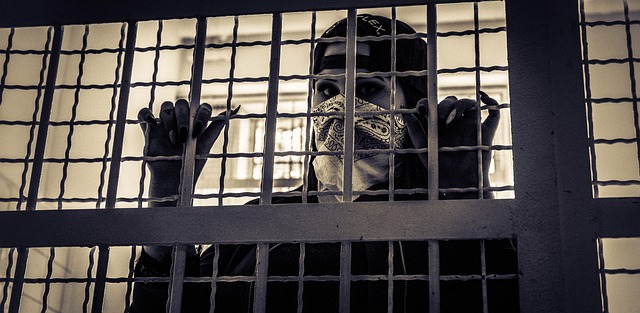Balanced Alcohol Testing (BAL) revolutionizes College Campus DUI Prevention by combining scientific principles and data-driven methods for accurate, unbiased breath or urine analysis. This approach reduces false positives/negatives, enhances fairness, enables targeted interventions, and fosters responsible drinking culture, ultimately safeguarding students, faculty, and campus community.
In the realm of college campus safety, Balanced Field Sobriety Testing (BAL) plays a pivotal role in DUI prevention strategies. Accurate BAL test results are essential for ensuring fair and effective enforcement while minimizing misdiagnosis. This article explores various aspects of BAL testing on campuses, from its application in sober driving assessments to enhancing student awareness about test accuracy. We delve into data-driven interpretations and the overall impact on reducing drunk driving incidents among college students, offering a comprehensive guide to college campus DUI prevention.
- Balanced Field Sobriety Testing: The College Campus Approach
- DUI Prevention Strategies: Why Accurate Results Count
- Enhancing Safety: The Role of BAL Testing on Campus
- Student Awareness: Educating About BAL Accuracy
- Data-Driven Decisions: Interpreting BAL Test Outcomes
- Reducing Misdiagnosis: Ensuring Fair Campus DUI Prevention
Balanced Field Sobriety Testing: The College Campus Approach

Balanced Field Sobriety Testing (BFST) has emerged as a game-changer in college campus DUI prevention. This innovative approach combines traditional field sobriety tests with advanced technology to deliver more accurate results. By integrating scientific principles and data-driven methods, BFST aims to minimize false positives and negatives commonly associated with conventional testing.
On college campuses, where alcohol consumption among students is a significant concern, BFST offers a promising solution. This method allows law enforcement officers to make informed decisions during traffic stops or other scenarios involving suspected impaired driving. By utilizing a balanced set of tests tailored to assess various aspects of sobriety, BFST enhances the overall accuracy and reliability of DUI prevention efforts on college campuses.
DUI Prevention Strategies: Why Accurate Results Count

DUI prevention strategies on college campuses are paramount in ensuring the safety of students, faculty, and visitors. Accurate results from BAL (Breath Alcohol Level) testing play a crucial role in this effort. When law enforcement and campus security use reliable BAL test devices, they can make informed decisions regarding potential DUI (Driving Under the Influence) incidents.
This is particularly important on college campuses where parties and social gatherings are frequent. Accurate readings help in identifying individuals who may be operating vehicles while impaired, thus enabling prompt intervention and potential DUI prevention. Reliable testing methods also contribute to building a stronger case for legal action, ensuring that those who violate campus or state DUI laws face consequences, thereby deterring future incidents of college campus DUI prevention.
Enhancing Safety: The Role of BAL Testing on Campus

On college campuses, enhancing safety is paramount, especially with concerns surrounding College Campus DUI Prevention. Balanced Alcohol Level (BAL) testing plays a pivotal role in this regard by offering an objective measure of a student’s alcohol impairment. This non-invasive method allows administrators and security personnel to quickly assess a situation and take appropriate actions, ensuring the well-being of all students.
By implementing BAL testing, campuses can create a culture of responsible drinking or prevent high-risk behaviors associated with alcohol consumption. Accurate results from these tests are crucial in identifying individuals who may pose a danger to themselves or others, enabling prompt intervention and potentially saving lives. It’s a proactive step towards managing DUI (driving under the influence) situations on college grounds.
Student Awareness: Educating About BAL Accuracy

On college campuses across the nation, educating students about the importance of accurate Breath Alcohol Testing (BAL) results is paramount in efforts to prevent DUI (Driving Under the Influence). Many students may not fully comprehend the implications of their actions or the reliability of testing methods. Therefore, raising awareness about BAL accuracy is crucial.
This education should encompass understanding that reliable BAL results are essential for ensuring public safety and upholding campus alcohol policies. By learning about potential factors affecting test accuracy, such as proper administration procedures, calibration checks, and maintenance of testing equipment, students can actively contribute to a safer environment. Moreover, informed students are empowered to make responsible decisions regarding alcohol consumption, recognizing the consequences of impaired driving.
Data-Driven Decisions: Interpreting BAL Test Outcomes

On college campuses, where alcohol consumption and potential DUI (driving under the influence) risks are a concern, BAL (breath alcohol level) testing plays a pivotal role in safety measures. Accurate results from these tests are crucial for making informed decisions that can prevent dangerous behaviors. By analyzing the data obtained from BAL testing, administrators and law enforcement officials can identify trends and patterns related to alcohol use among students. This data-driven approach allows them to implement targeted strategies for DUI prevention tailored to the specific needs of the campus community.
For instance, if test results reveal a higher incidence of elevated BALs during certain social events or weekends, colleges can collaborate with student groups and local authorities to enhance safety protocols during those times. Accurate data enables the development of effective educational programs, policy adjustments, and resource allocation strategies to mitigate alcohol-related risks on campus. Ultimately, interpreting BAL test outcomes is a powerful tool in the pursuit of creating safer environments for students, fostering responsible behavior, and reducing potential DUI incidents within College Campus settings.
Reducing Misdiagnosis: Ensuring Fair Campus DUI Prevention

Balanced Alcohol Testing (BAL) plays a pivotal role in reducing misdiagnosis and enhancing fairness in college campus DUI prevention. Traditional testing methods often rely heavily on self-reporting, leading to potential biases and inaccurate results. BAL, however, provides an unbiased approach by objectively measuring alcohol levels through breath or urine analysis. This ensures that every student is treated equitably during the prevention and enforcement processes.
By implementing BAL, college campuses can significantly improve their DUI prevention strategies. Accurate testing helps identify individuals who may be at risk of impaired driving, enabling targeted interventions and educational programs. Moreover, it serves as a powerful deterrent, discouraging students from engaging in risky behaviors associated with alcohol consumption. Ultimately, this contributes to creating a safer environment for all members of the campus community.
Accurate Balanced Field Sobriety Testing (BAL) is a pivotal tool in college campus DUI prevention, ensuring fair and data-driven decisions. By educating students about BAL accuracy and implementing strategies that reduce misdiagnosis, campuses can enhance safety and prevent impaired driving. In light of these discussions, it’s clear that embracing advanced testing methods is not just a best practice but an essential component of comprehensive DUI prevention strategies in the college environment.






